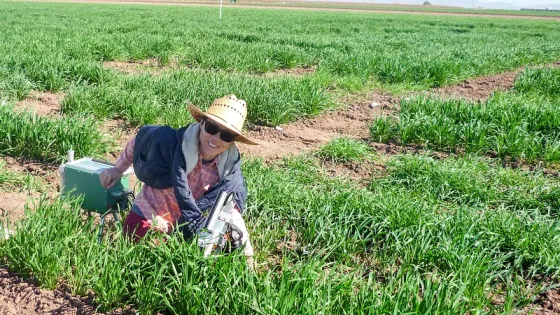Past events
This page lists RSB past events.

Malaria is an ancient disease leading to the death of more than half a million people every year.

Rhynchosporium commune is a pathogenic fungus causing barley scald disease. Although scald disease has become a significant issue for commercial barley growers, the molecular mechanisms underpinning the disease are poorly understood.
Bacterial flagella self-assemble a strong, multi-component drive shaft that couples rotation in the inner membrane to the microns-long flagellar filament that powers bacterial swimming in viscous fluids.
The vast majority of plants are mycorrhizal, with two of the most dominant types (arbuscular [AM] and ectomycorrhizal [EcM]) existing at opposite ends of multiple spectra.
Seeds provide 70% of global food resources, being the most valuable output from plant production. They also play a critical role in agriculture because the lifecycle of most crops begins from seed germination.

C4 photosynthesis involves a number of biochemical and anatomical traits that significantly improve plant productivity under conditions that reduce the efficiency of C3 photosynthesis.
Carp gudgeons in eastern Australia have evolved a complex and quirky system of hemiclonal unisexual reproduction.

Nitrogen (N) is a primary nutrient that is essential to the survival of all living organisms. Crops are inefficient in their N use, losing 50-70% of applied N, which transforms to reactive nitrogen Nr, to the environment.
Markus Muttenthaler (University of Queensland)
